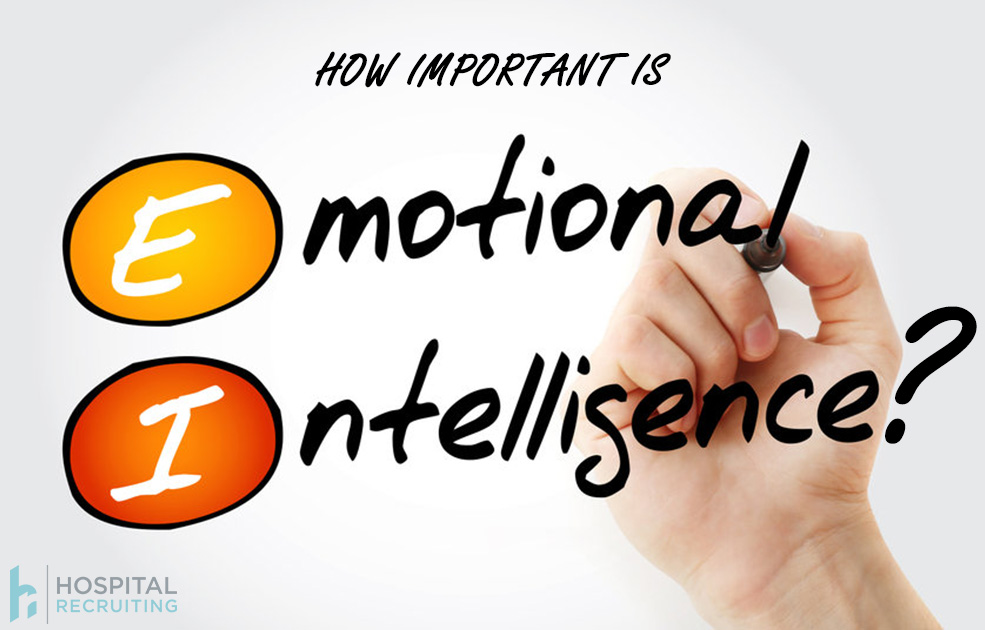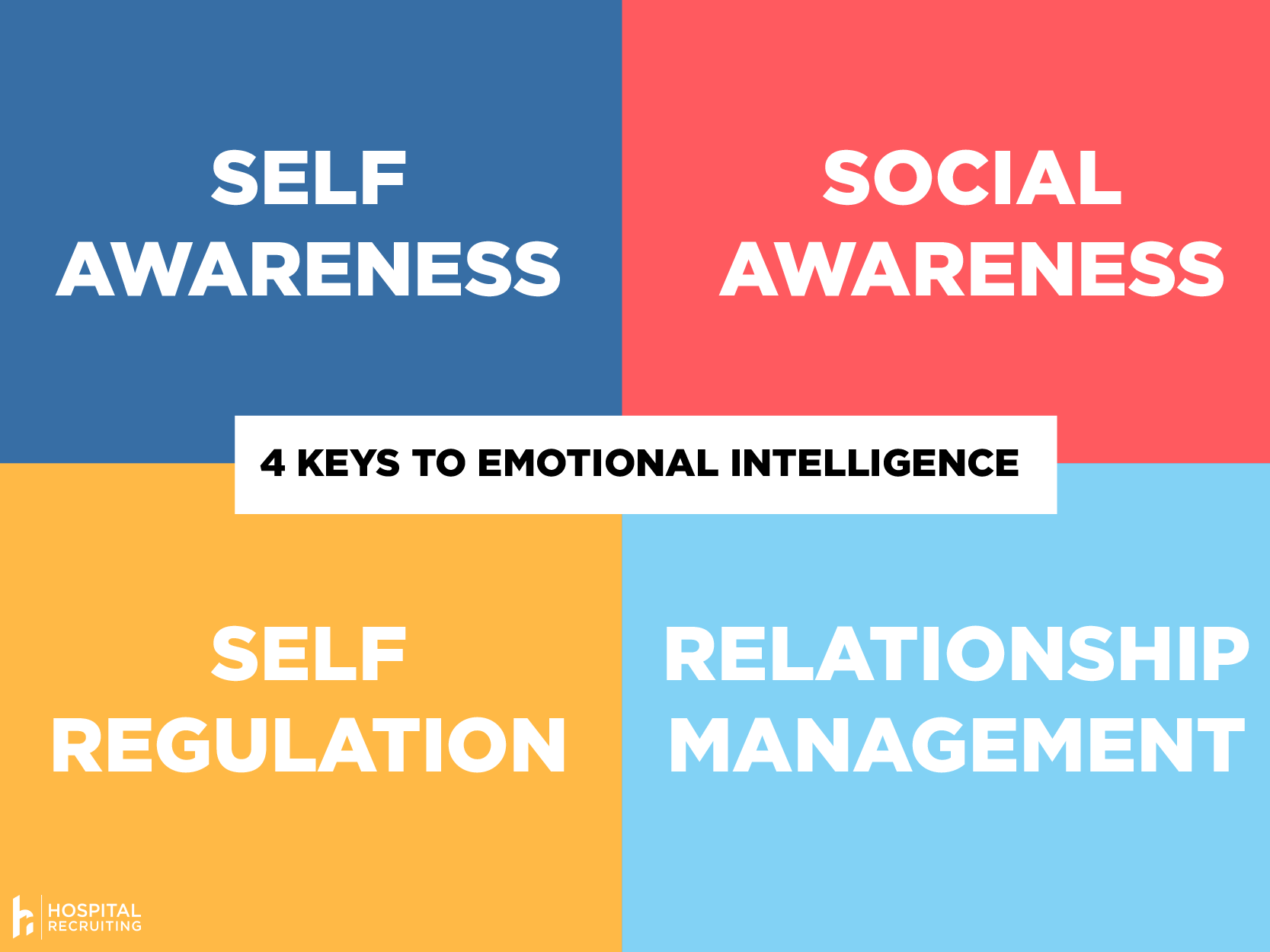
You may have heard the term emotional intelligence (EI or sometimes EQ – like IQ) when discussing soft skills institutions look for in potential hires. EI can be particularly valuable for recruitment professionals. These employees have the power to make or break a facility, choosing the best possible talent or contributing to poor engagement and churn.
What is Emotional Intelligence?
The term has been around for decades, originally coined in the 1990s. Peter Salovey and John D. Mayer defined emotional intelligence as “the subset of social intelligence that involves the ability to monitor one’s own and others’ feelings and emotions, to discriminate among them, and to use this information to guide one’s thinking and actions.” When it comes to recruiters, these skills help them read candidates to find who might be the best fit for any position.
Emotional intelligence encompasses 4 main characteristics. These are important to all workers but can be particularly helpful for recruitment professionals.

Self-awareness
High EI professionals are aware of their emotions and their emotional reactions to others. They recognize when cognitive intelligence is taking a back seat to an emotional response. Yes, you may ‘like’ certain candidates – they’re amiable and pleasant – and feel a connection with them. That emotional response doesn’t make them right for the job, however. A first impression of another candidate might be less positive, yet he/she might be the perfect fit. Self-awareness is a key factor in hiring the right person for the job.
Self-regulation
Separating emotional and cognitive responses are critical to the best hiring decisions. First recruitment professionals must be aware of their reaction; next they need to regulate it. Is their response to a candidate based on subjective criteria? Without self-regulation, they may be excusing or over-emphasizing to confirm their emotional response. Emotions are not part of the hiring equation; it takes a high level of EI to segregate them.
Social awareness
Being able to set the stage for a profitable interview is key to good recruitment. Strong communication skills are a must, as are good listening skills and empathy. With these social awareness skills, the recruiter will put a candidate at ease and acquire the most relevant information for the institution. Few recruiters can do well without strong social skills, and those with high EI will be the most successful.
Relationship management
Building a connection with potential hires is key, particularly in a tight applicant market, to convincing a job seeker to choose your facility. Strong skills in relationship management help the recruiter ‘read’ the candidate. Knowing when to allay concerns, when to build on excitement, and when to give step back are critical. Surveys found over 80% of job seekers will rethink a role or institution they once doubted if they had a strong candidate experience; another 83% said a negative experience changed their mind about a role or company. When recruiters have strong relationship-building skills, they maximize candidate experience, boosting conversion rates from job seekers to new hires.
Innate or trainable?
Once considered a natural trait, experts now believe emotional intelligence can be learned and developed. There are many tests available to help recruiters determine how high their skill levels are. There is training available to help develop or build on one or more of the EI categories. The challenge will be to understand the value of EI, then work to build skills to better leverage it when recruiting. A bonus – strong EI skills work in all professional and personal relationships. These are skills valuable to everyone and every employee (particularly recruiters and managers) in your facility.
The EI ripple effect on retention
Emotional intelligence may be key to retention as well as recruitment. A survey by Initiative One found workers are 400% less likely to leave a job if they have a high EQ manager. With the high cost of churn, retaining existing talent should be as much a part of recruitment strategy as any other task.
As we depend more on technology in recruitment and hiring, the personal touch is often what sets one facility apart from another. A human connection, with a recruiter or hiring manager, can be the determining factor in a candidate’s decision on where to accept or decline an offer. When your team has high EI, the scales may be tipped in your favor. In a tight talent market, even the slightest advantage is worth pursuing. High EI is more than a slight advantage: it’s a life skill that works for everyone.
